Bouncie is a GPS tracking device for your car designed to help drivers stay safe and aware. The device plugs into the OBD2 (on-board diagnostics) port in your vehicle and gives real-time updates and driving data. You can see your car’s location and trip details like speed, driving habits, and accident notifications.
For parents, it may give you peace of mind when your teenager drives home late at night; for business owners, Bouncie can provide helpful insight when it comes to managing your fleet.
We tested Bouncie for ourselves to see if these and other claims made about the device are true. In this review, we will share our firsthand experience and explain the features in more detail.
Editorial Disclosure: Bouncie sent me this unit free of charge. I was not compensated by the company for this product review, although I was allowed to keep the product. The opinions below are my own and do not necessarily reflect those of Automoblog or its parent company, Gearhead Media LLC.
Affiliate Disclosure: Automoblog and its partners may be compensated when you purchase the products in this review.
A Brief History of Bouncie
Bouncie was launched in 2017 by Tail Light LLC, a tech company in Plano, Texas. Since the launch, several new and important features have been added.
- 2019: The company expanded its service area to Mexico and Canada, sped up notifications, and allowed users to view trips in progress.
- 2020: Accident detection and notifications were added, which is one of the many ways the device keeps drivers safe. We expect to see more updates and features released in the coming months and years.
What Does Bouncie Cost?
When you sign up, there’s a one-time payment of $67 for the device and an $8 per month subscription. There are also discounts available if you decide to get multiple devices. After you order the device, you should receive it in 2-3 business days.
Installation & Setup
The setup process took us around 15 minutes from opening the box until we started driving. You can access everything from Bouncie.com, but we recommend getting the Bouncie app from the App Store or Google Play. When you create an account, it will ask you to enter information about your vehicle, like your make and model, VIN, and current mileage.
Everything is straightforward, and there’s a “Chat With Bouncie” button you can click to connect to a support chat. Since most people have never used the OBD2 port in their car, it might be challenging to find. During the setup, you’ll need to plug in the device to the OBD2 port. Typically the OBD2 is near the driver’s door panel, underneath the steering wheel, but directions for each vehicle type are available if you need help.
The device is small, so once you plug it in, it blends right in. After it’s installed, you’ll need to drive around for at least 10 minutes for the device to connect and calibrate. After the first drive, you’ll begin getting live info and stats about your trips.
Bouncie has many features and settings that you can adjust. Some, like accident notifications, will need to be activated before they start working. The first drive won’t be recorded, but you will get all of the basic stats after the first 10-minute drive without adjusting any settings.
Bouncie offers useful insights whether you’re a parent concerned about the safety of your kids, a business owner tracking expenses, or even a normal driver who wants to keep track of things for your own personal knowledge. Some features will be more or less helpful depending on what you’re using it for. Here is a list of each feature, with a brief description of how they work.
Features for Parents
As a parent, letting your kids drive can cause a great deal of stress and even more gray hair. It’s perfectly normal to be concerned about your kids getting behind the wheel. The info about driving speeds, location, and accidents are all helpful.
Live Location
Bouncie detects your location every second during a drive and uses accelerometers to track speed continuously. During a drive, you can get up-to-date info every 15 seconds. The device will show you an overlay on Google maps of the car’s location, when the trip started, and how fast you are moving.
You can also set up a geo-zone. When your car enters or leaves a geo-zone, you’ll get a notification. This is helpful when you don’t want your kids leaving a particular area or knowing when they get to their destination.
The only problem we found with this is it’s limited to a circle, rather than a straight line from point A to B, but you can make it as big or small as necessary. You can put a geo-circle around your neighborhood if you want your kids to stay close by, or around a specific house or address if you need to know when your kids arrive.
Accident Detection
We didn’t test how well this works for obvious reasons! However, the device can detect an impact or a sudden decrease in speed and send a notification. You will get a notification and have the option to call 911, and you can add a setting that sends a text message if an accident is detected.
Roadside Assistance
Bouncie can send help your way, and the cost is included in your subscription. If your teenage driver runs out of gas, needs a jump start, or has a flat tire, you can take advantage of a network of roadside assistance providers. This is available to use three times in any 12-month period, and can be a big help when you need it the most.
Unsafe Driving Notifications
These notifications let you monitor how your kids are driving. In the settings, you can adjust the sensitivity of things like hard braking and rapid acceleration, while also setting speed notifications.
During our test drives, we adjusted the sensitivity settings from low to high. With the high sensitivity, we got notifications for hard braking and rapid acceleration over 8 mph per second. Low sensitivity notified us of incidents over 14 mph per second. We intentionally set off the notifications (while staying relatively safe). During normal driving conditions, we didn’t get any notifications.
Based on our tests, we’d say that parents shouldn’t be concerned about 1 or 2 notifications per week, but more than a few may be a safety concern, especially for new drivers. The device gives you details of each incident and where it happened once the trip is completed. You can also set a curfew and get a notification if the car is being driven after your set hours.
Should I Tell My Kids We’re Using Bouncie?
If you’re unsure of how to talk to your children about why you’re going to use Bouncie, they wrote this helpful article on the topic. If you don’t tell your kids about the device it’s unlikely that they’ll notice it. However, it’s best to communicate the benefits and tell them you’re using it for their safety, not because you don’t trust them.
Features for Businesses
Bouncie can be utilized by businesses that have delivery drivers, rideshare drivers, or employees who frequently travel for work. For a few dollars per month, business owners and fleet operators can collect useful data to track productivity and expenses.
Historical Stats
Bouncie tracks and collects data that can be helpful in your business. And all of the data can be exported into a spreadsheet. You can view the total driving time, miles driven, and idle time for any date range. Instead of guessing your business expenses, you can have real data.
Know Your Average Trip
Do you know the average cost of your deliveries or your customer service visits? The device records how many trips you’re taking, the average length of those trips, and how much fuel is required for each trip. You can keep track of the exact cost per trip and track each vehicle and driver’s productivity for a few dollars per month.
Features for Personal Use
Even if you’re not using Bouncie for a business or to monitor young drivers, it has some other helpful benefits.
Max Driving Distance
You can set a mileage alert up to 500 miles with the device. This is excellent if you are currently leasing your vehicle. For example, if your lease is limited to 12,000 miles per year, you can set an alert for 230 miles – the weekly limit for 12,000 per year. The alert can help you stay aware and avoid hitting the mileage limit months before your lease is up.
Care Plan
The Care Plan helps you create reminders for regular maintenance and upkeep. You can set up a reminder at certain mileage intervals or a specific date to receive notifications accordingly. This helps when you want a reminder about changing your oil, replacing your windshield wipers, or other things like renewing your registration. Bouncie will also monitor your battery and alert you if a check engine light comes on.
Connect to Smart Devices
You can connect your Bouncie device to Amazon Alexa, Google Home, and IFTTT (If This, Then That). Right now, the connection is relatively limited. We asked Alexa, “Ask Bouncie if I need gas.” Alexa answered, “The Honda has 70 percent gas left.” We also asked where our car was, and Alexa gave us the address where we were parked. You can set up IFTTT to turn on your smart home lights when you get home.
Although the features are limited right now, with the rise of IoT (internet of things), we expect to see future Bouncie devices offer more connectivity.
How Bouncie Compares to The Competition
There are a few other popular options for GPS devices. We compared Bouncie side-by-side with the most popular competitors.
| Bouncie | AutoBrain | Vyncs | |
|---|---|---|---|
| Device Cost | $67 | $30 | $140 (incl. 1 year of service) |
| Recurring Cost | $8/month | $9/month | $99+/year |
| Contract | No | No | 1 Year |
| Free Trial/Refund | 45 Days | 30 Days | 30 Days |
| Live Updates | 15 Seconds | 10 Seconds | 60 Seconds |
| Trip History | Unlimited | Unlimited | Unlimited |
| Availability | US, Mexico, Canada | US, Limited in Canada | 200+ Countries |
How We Tested Bouncie
Our first drive after installing the device in our 2013 Honda Accord was around 12 minutes. After that, we refreshed the app, and it was ready to start tracking our test car. We drove 200 miles over 24 trips with no issues or signal loss. We tested Bouncie in San Diego, so we could see a potential loss of signal in more rural areas where cell service isn’t great.
If the device loses its signal while driving, it will still track the total miles, but the live updates may be delayed. Bouncie also overlays your driving speed, so a temporary loss of signal could cause some missing speed data.
When we used the live tracking, we were at home, and someone else was driving around in our 2013 Honda Accord. However, the device updated every 15 seconds as expected. We saw the current driving speed, current location, and where the trip was started.
Overall, we were impressed with the ease of everything and the simplicity of data. You don’t need to be a tech guru to start using the device or the app, and all of the driving stats are easy to review and understand.
Customer Service
Thankfully, during the setup process and during our drive, we didn’t need any help. It does give us peace of mind that there is help available, including a live chat during business hours, and a Help Center with quick answers and how-to’s available in the app and on the website.
Is Bouncie Right for You?
Overall, we found the device to be very easy to use, and the data collected is helpful. We can easily see how using Bouncie can benefit you, whether you’re a parent, business owner, or love having all of your devices connected. Once installed, you can set it and forget it, while tracking the driving information that’s most important to you.
Bouncie has an excellent 4.7/5 rating on TrustPilot with hundreds of great customer reviews, and, based on our research and testing, we give it our stamp of approval. Overall, the device is a cost-efficient and easy to use tool to keep your family safe on the road and increase the efficiency of your business.
Frequently Asked Questions
Is Bouncie legal?
If you’re the owner of the car, it’s legal to install and use Bouncie. As we mentioned, most people will never notice the device.
Does it work in other countries?
Bouncie works in the United States, Canada, and Mexico. The device uses AT&T’s network, so it will work everywhere you get service. There may be some missing trip info if the device can’t connect.
Can I pause or suspend my service?
You can cancel your monthly subscription at any time and continue using it until the next bill is due. If you want to stop the tracking, the easiest way is to unplug the device. It will take a few minutes to reconnect when you plug it back in. You can also delete trips from the history if you need specific weekly or monthly data.
Can I use it for more than one vehicle?
The Bouncie device can only track a single car at a time. You can switch it over to another vehicle or purchase multiple devices for other vehicles. If you have three or more devices, the monthly cost drops to $6.70 per month, per device.
Will it work in my car?
Bouncie will work in any car with an OBD2 port, which includes most cars made after 1996. Some cars won’t show the current fuel level, but most newer cars include this feature. Before you make a purchase, be sure to check your car’s compatibility.
What if my car doesn’t have OBD2?
Bouncie works out-of-the-box on all cars with a standard OBD2 port. If you don’t have an OBD2 port, there are other installation options available.
Where Can I Buy it?
You can buy the Bouncie device and monthly service at the official Bouncie website, or on Amazon.com, although we always recommend buying it directly from the manufacturer when possible.
Technical Specifications
Physical
- Height: 1.875 in. (4.76 cm)
- Width: 1.75 in. (4.44 cm)
- Depth: 1.0 in. (2.5 cm)
- Weight: 1.13 oz (32.1 g)
GPS
- Receiver: 56-channel GPS receiver and GLONASS Tracking: -162 dBm
- Antenna: Internal built-in
- Accuracy: Position 2.5 m CEP
Accelerometer
- 3-Axis: X, Y, Z output
- Auto-Normalization: Self-Calibrating, Auto-Normalization to the direction of motion.
Wireless
- Cellular: 3G Penta-band 800, 850, 900,1900, 2100
- Antenna: Internal built-in
Certifications
- Carrier: FCC and PTCRB Certified
- CE: CE Certified
- E-Mark: e-Mark E-13
- Environmental: RoHS Compliant
Original article: Bouncie GPS Vehicle Tracker: First-Hand Review & Comparison Test
from Automoblog https://ift.tt/34v0CFj
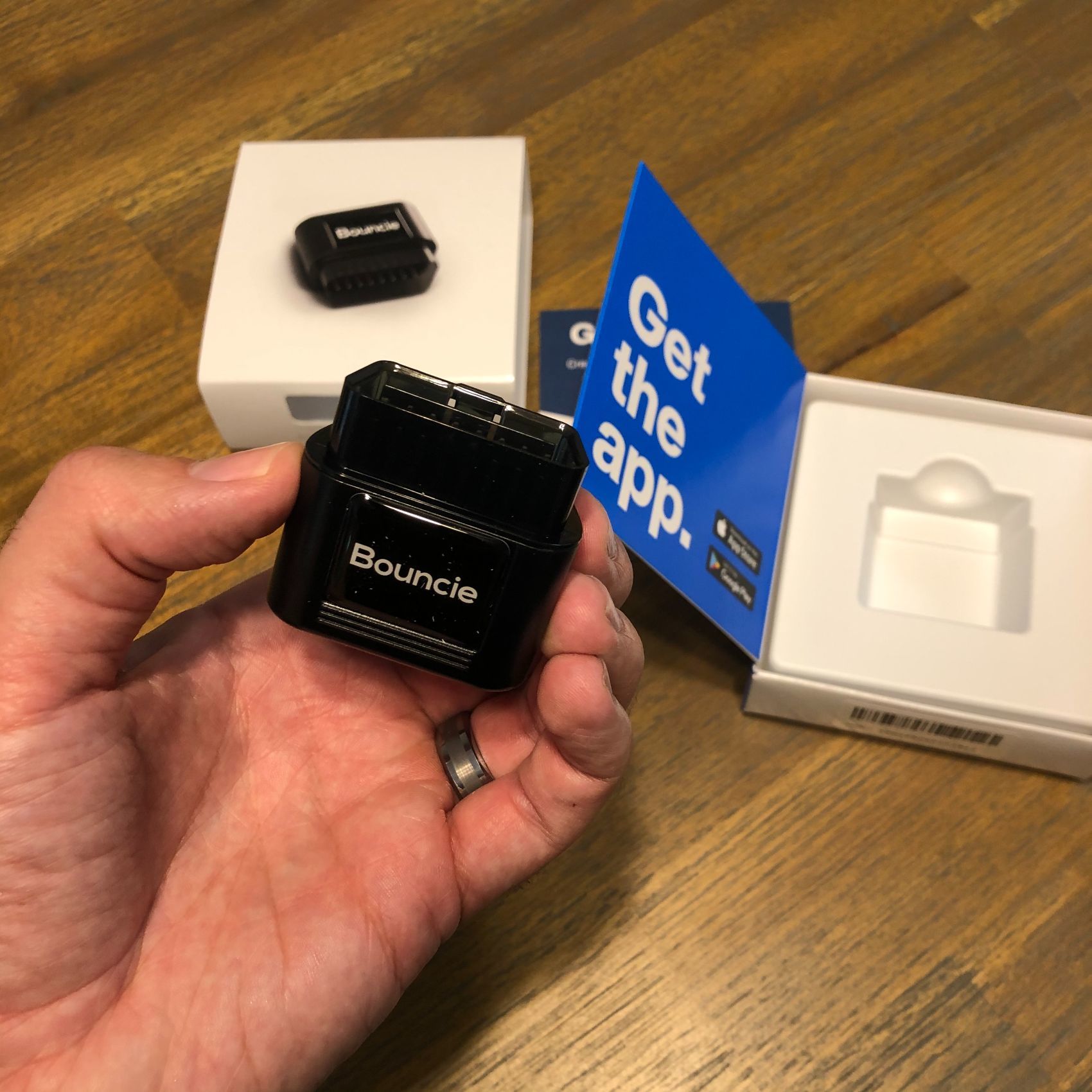
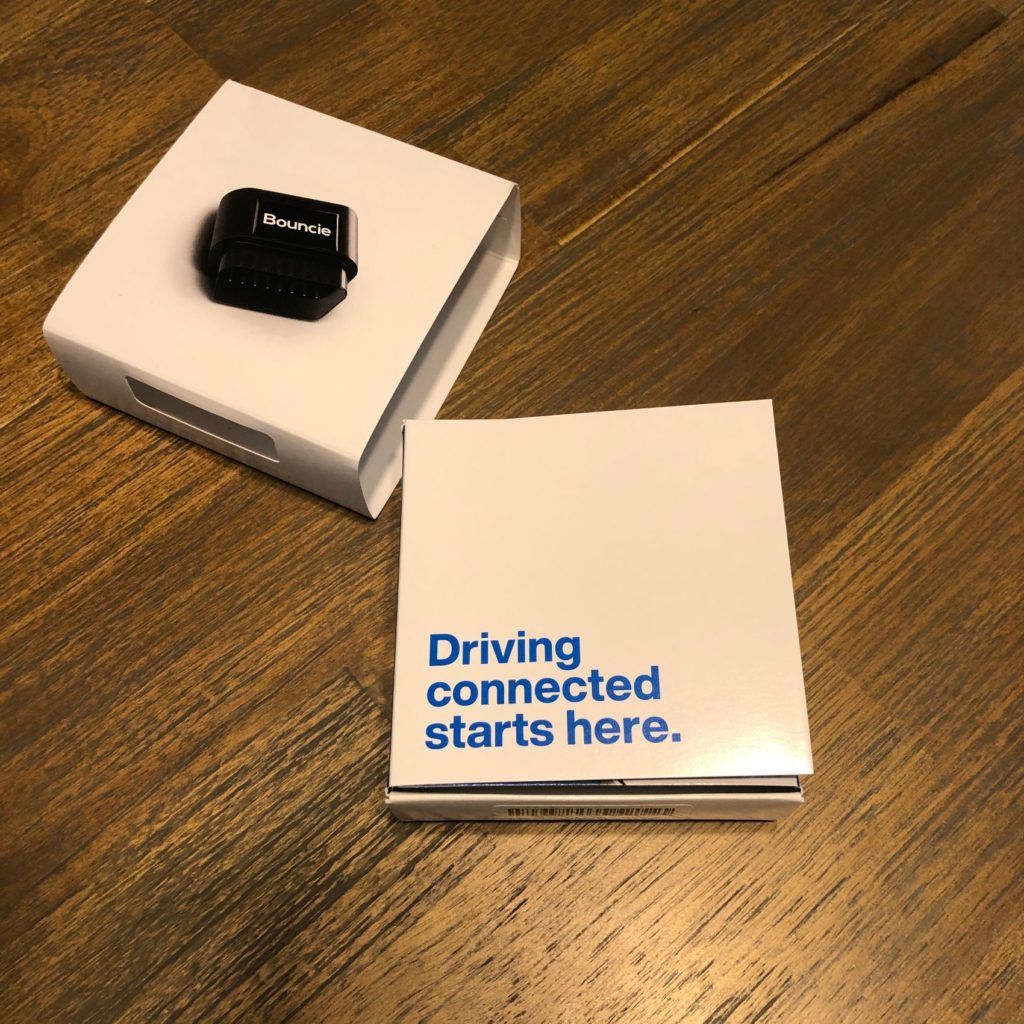
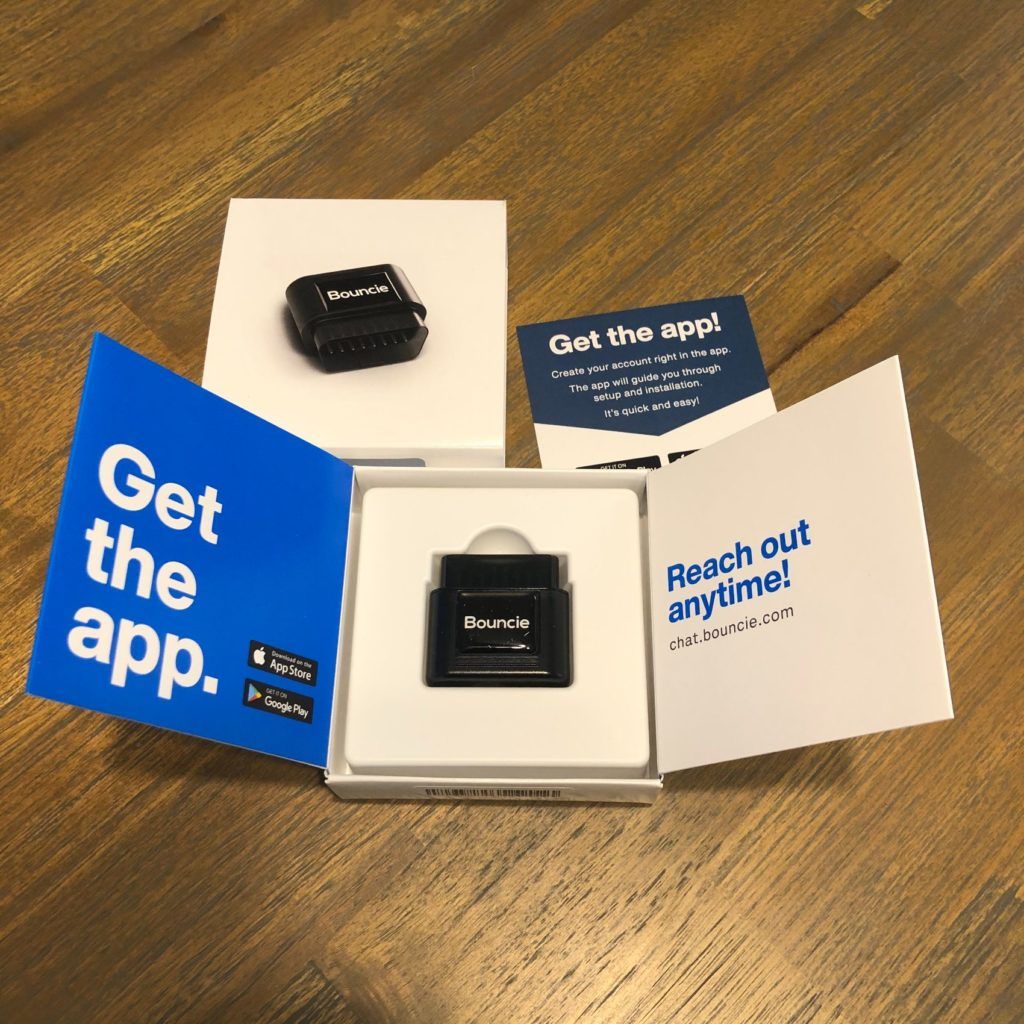
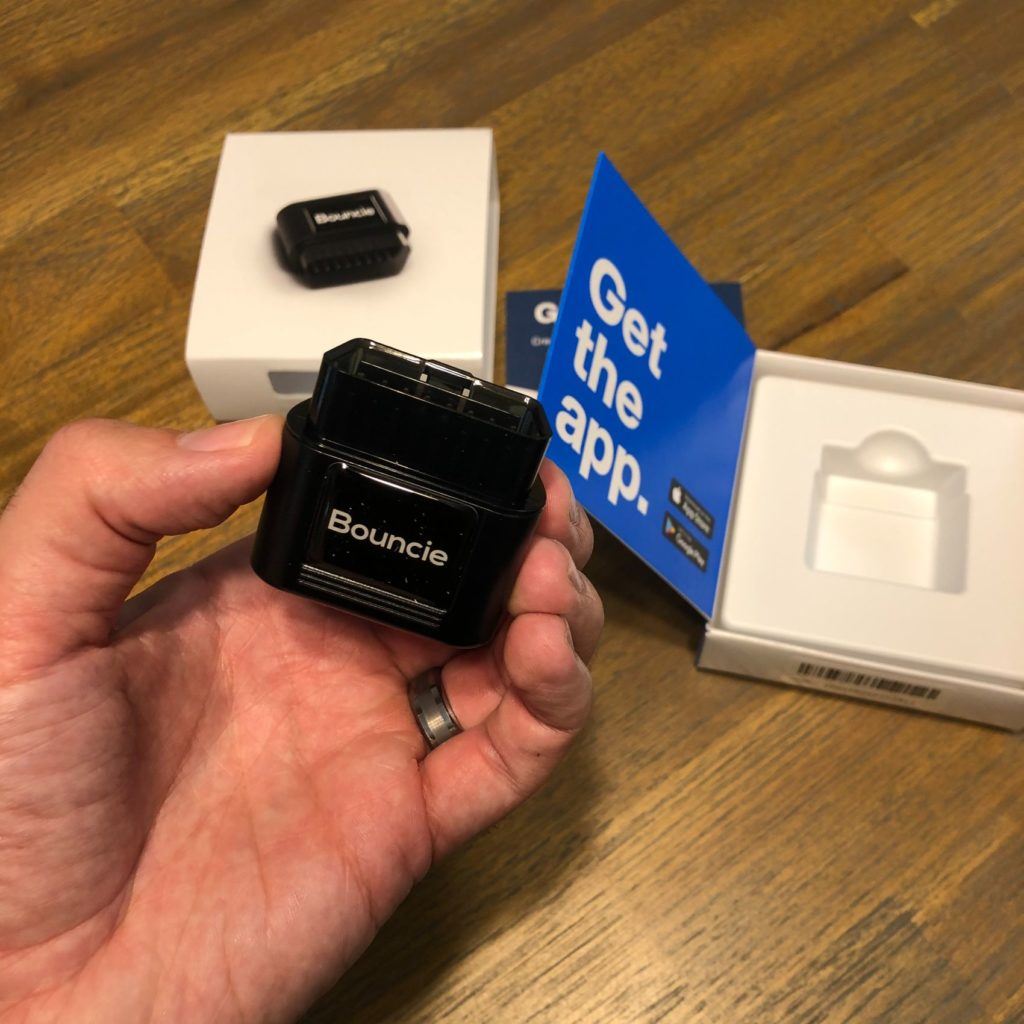
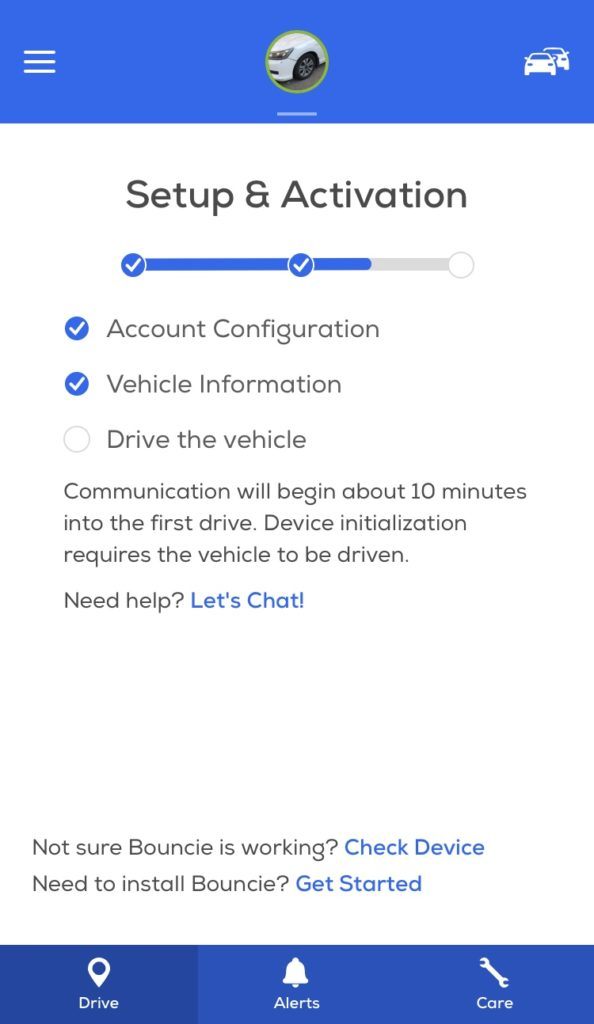
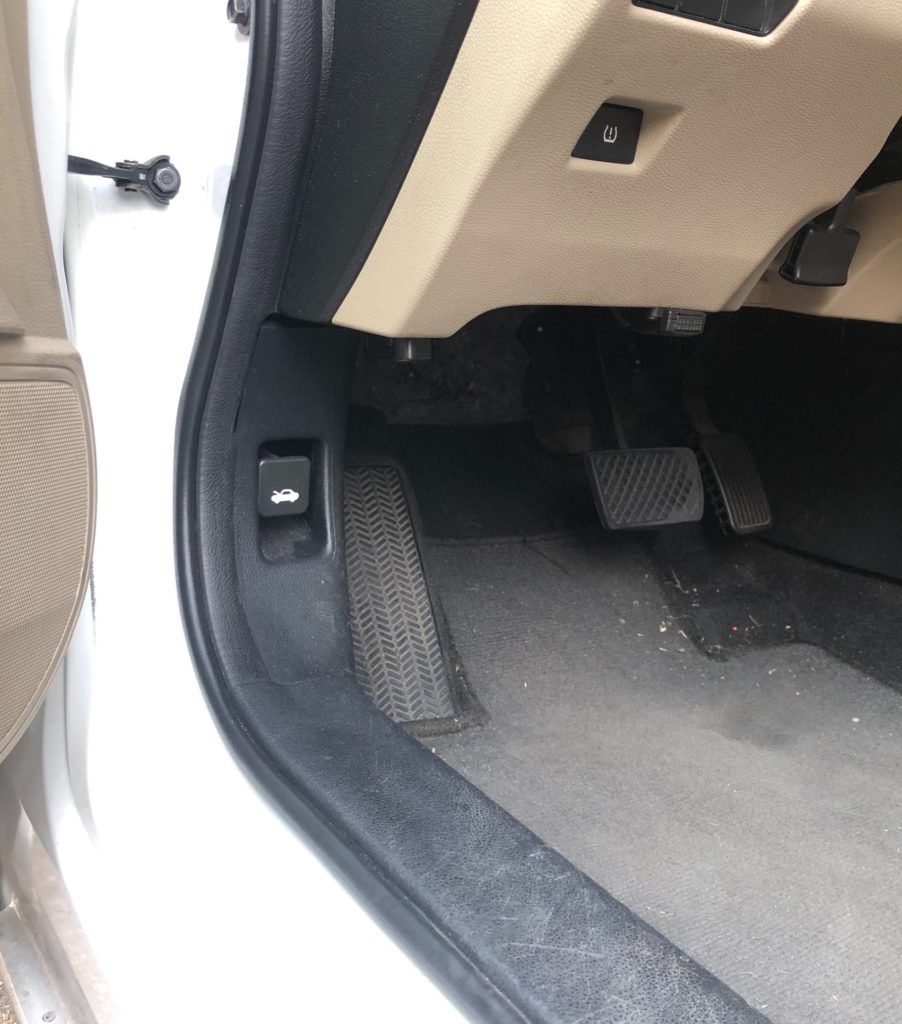
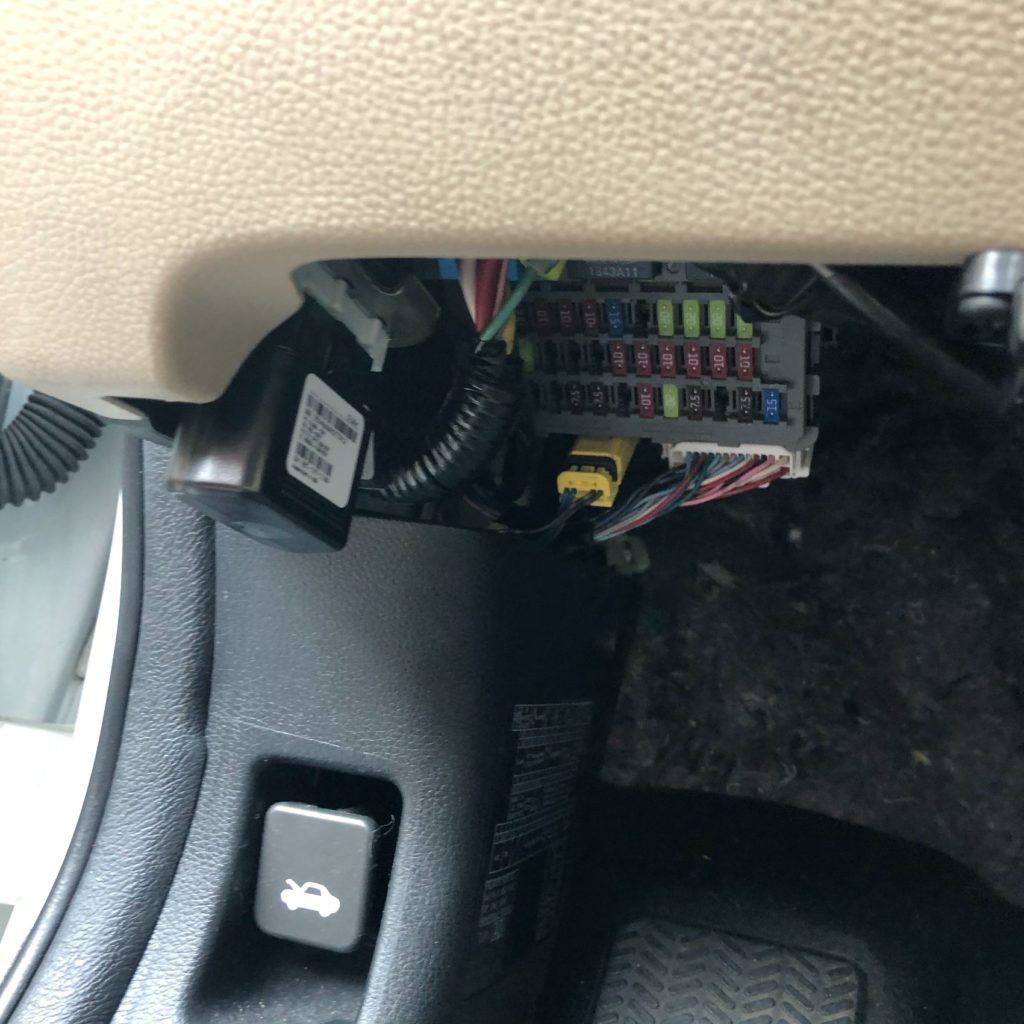
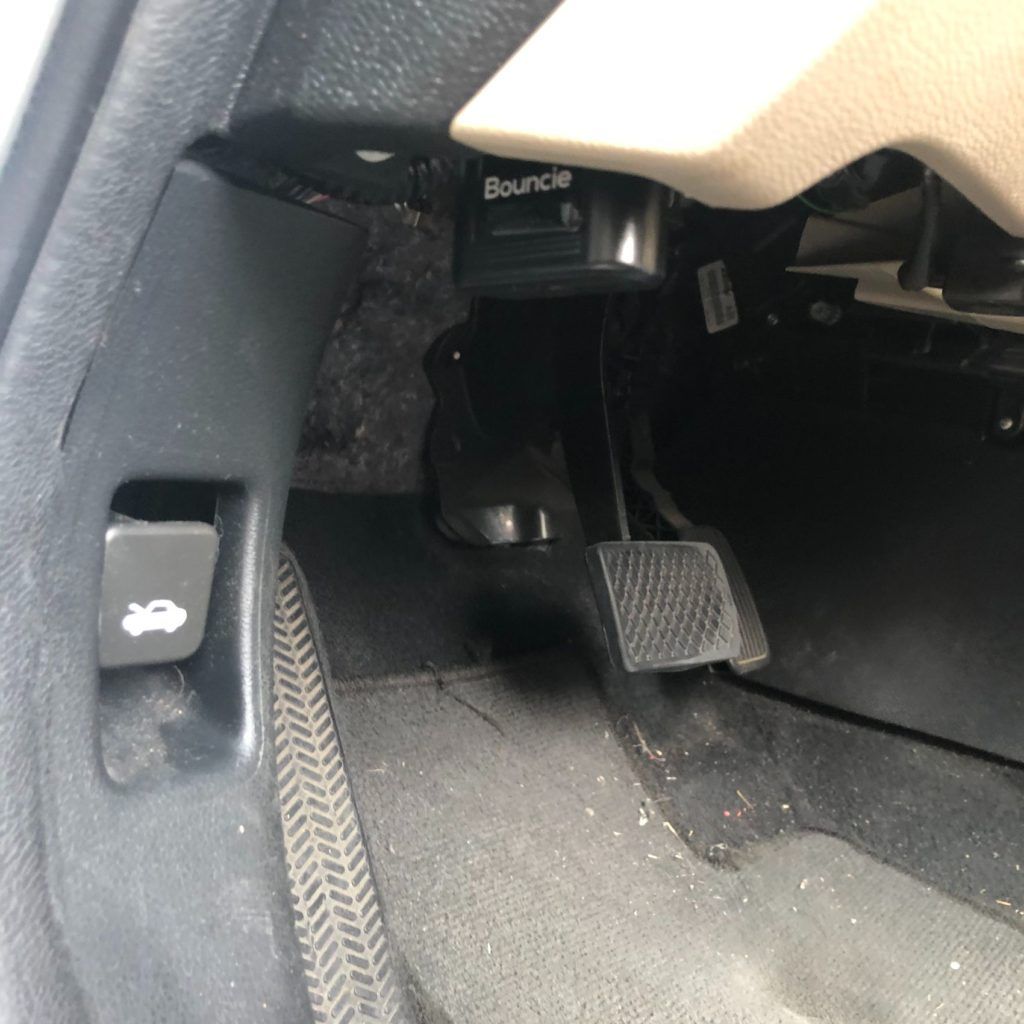
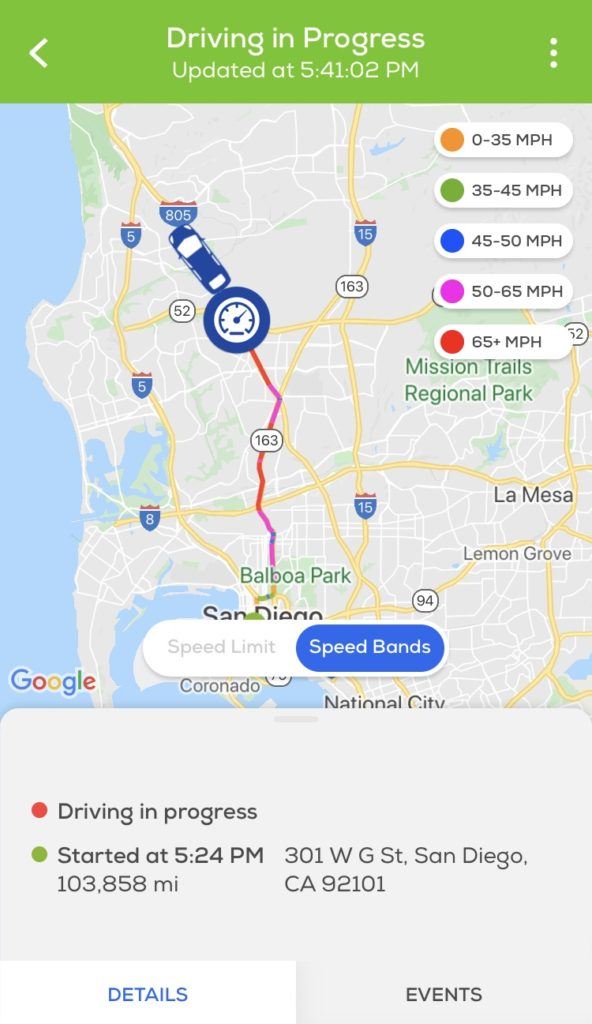
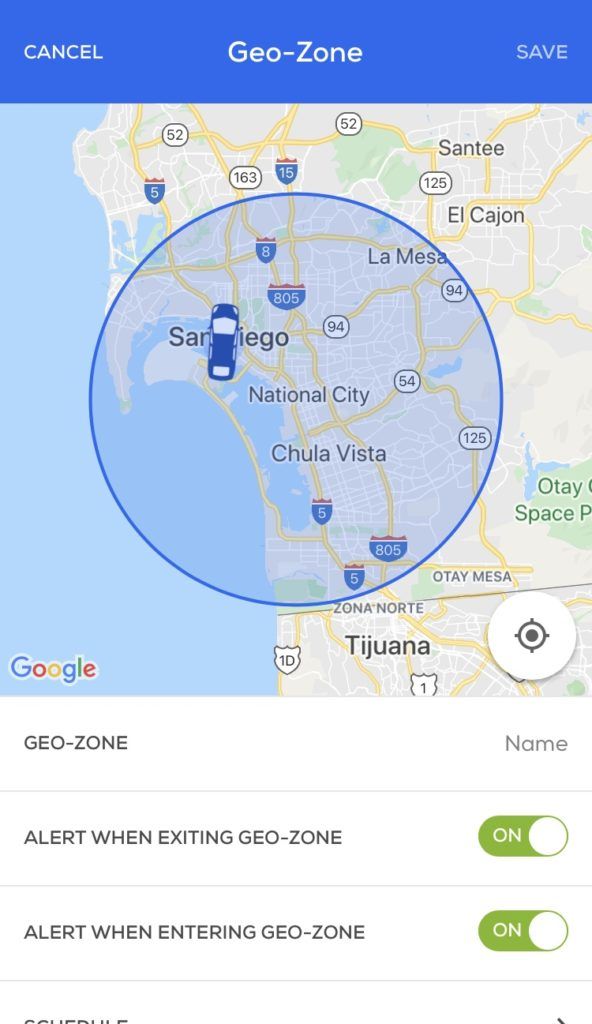
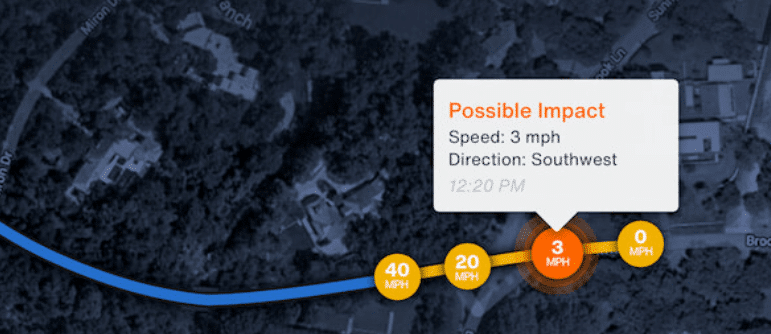
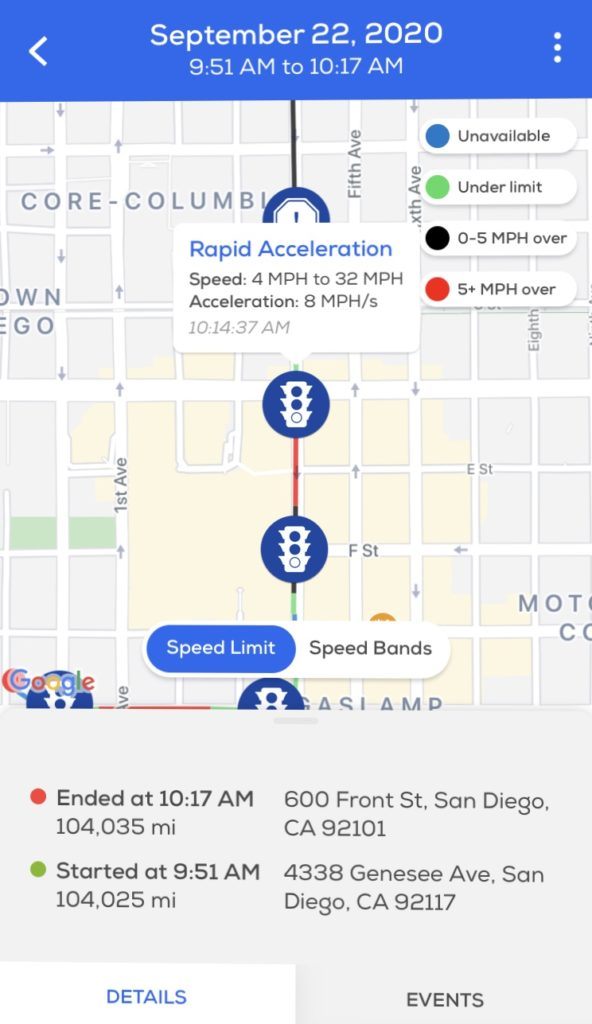
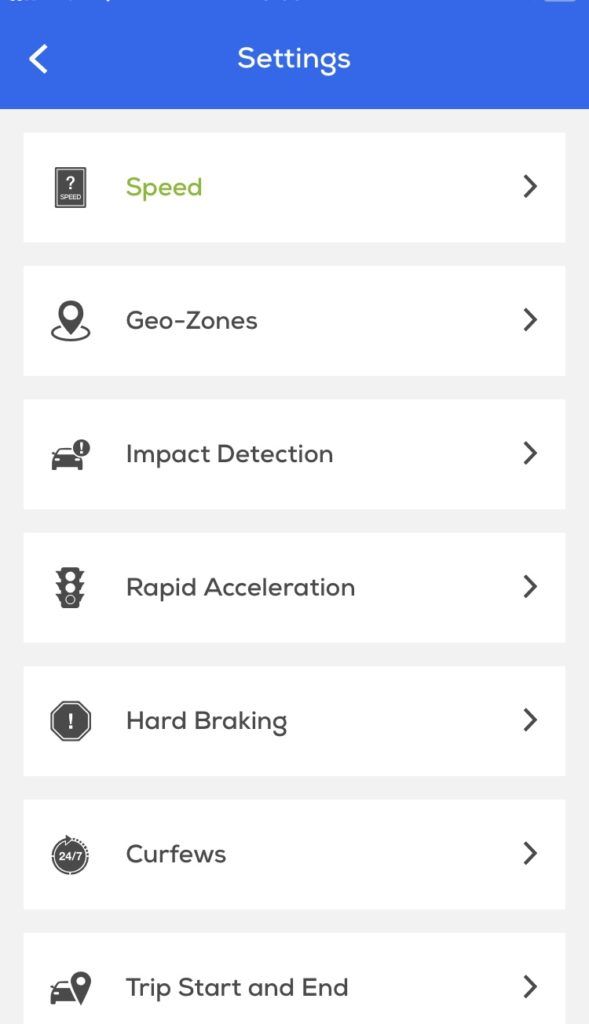
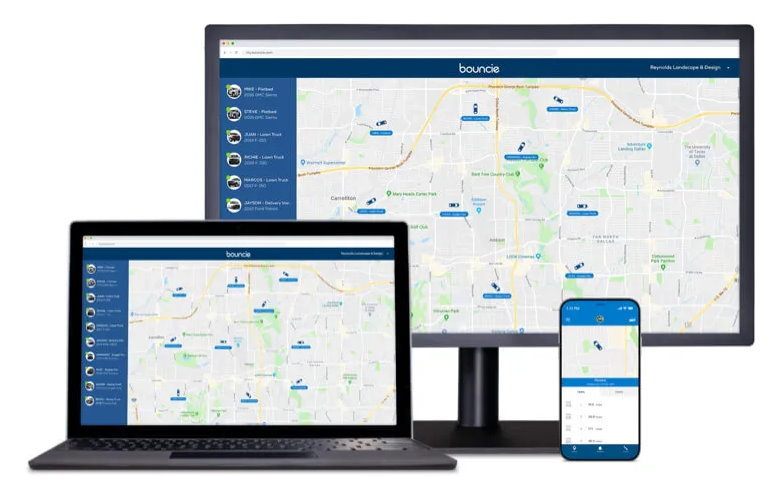
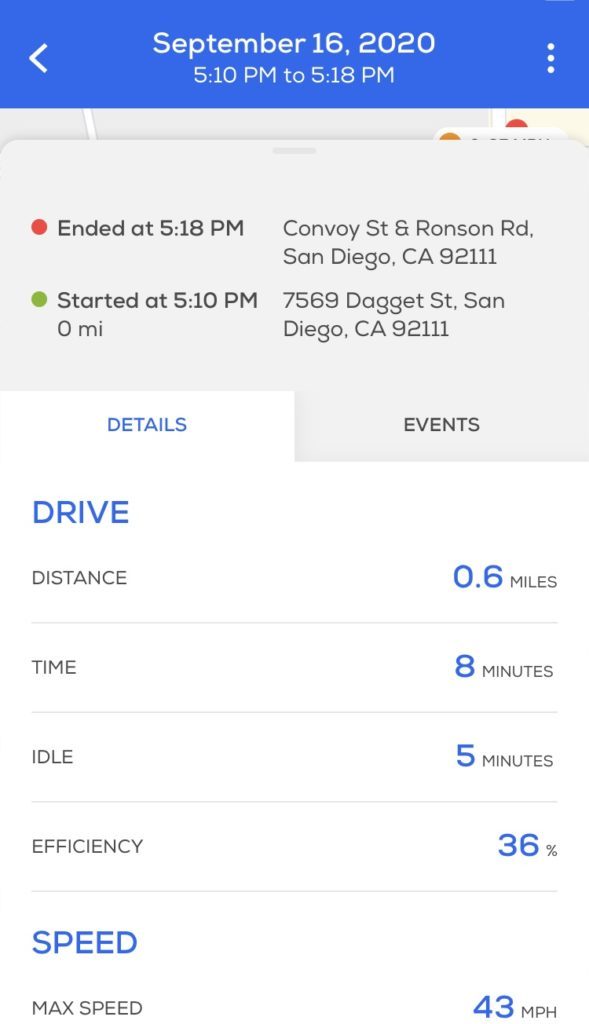
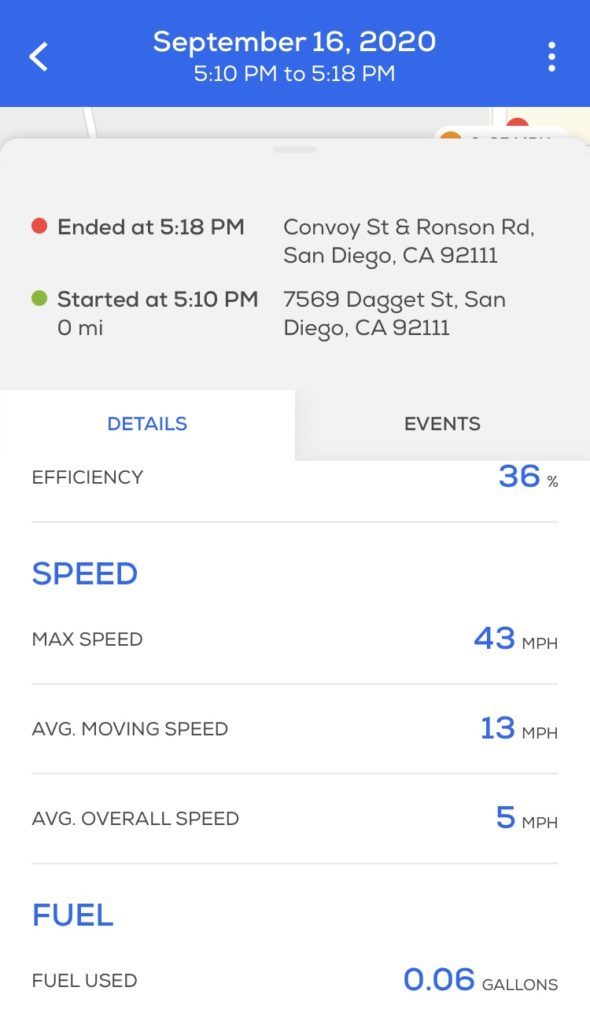
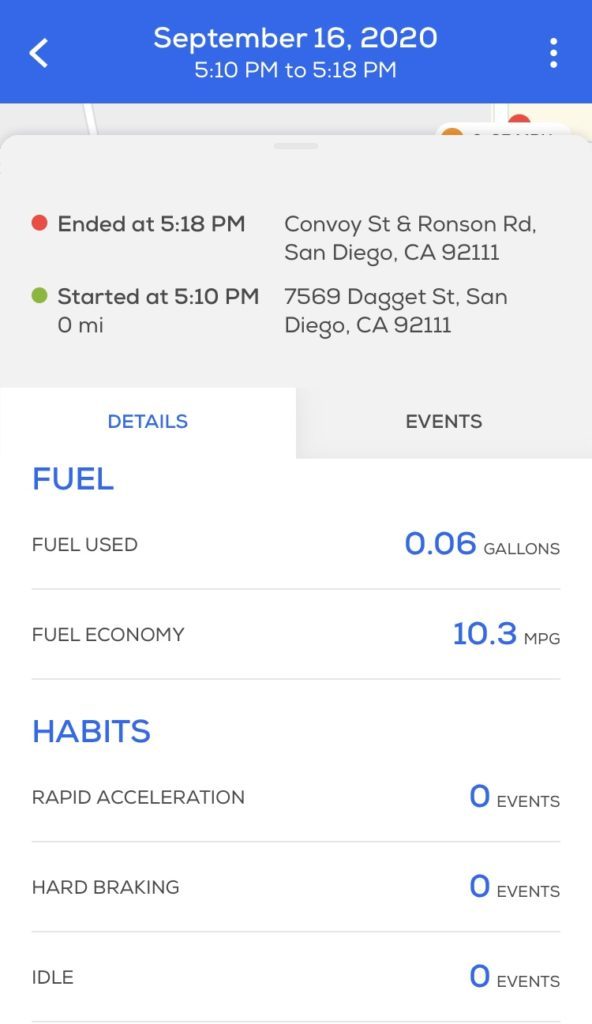
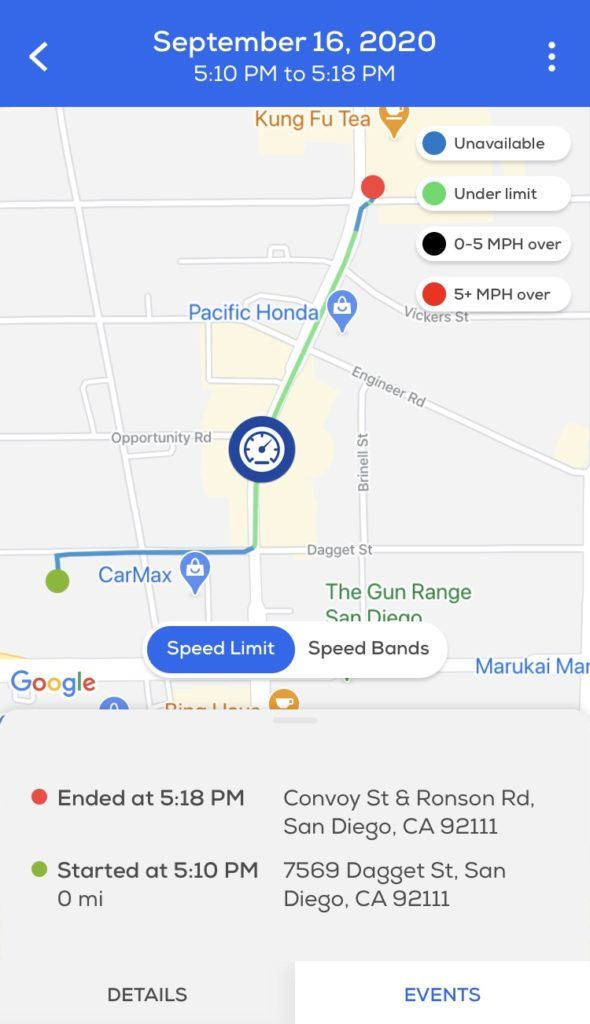
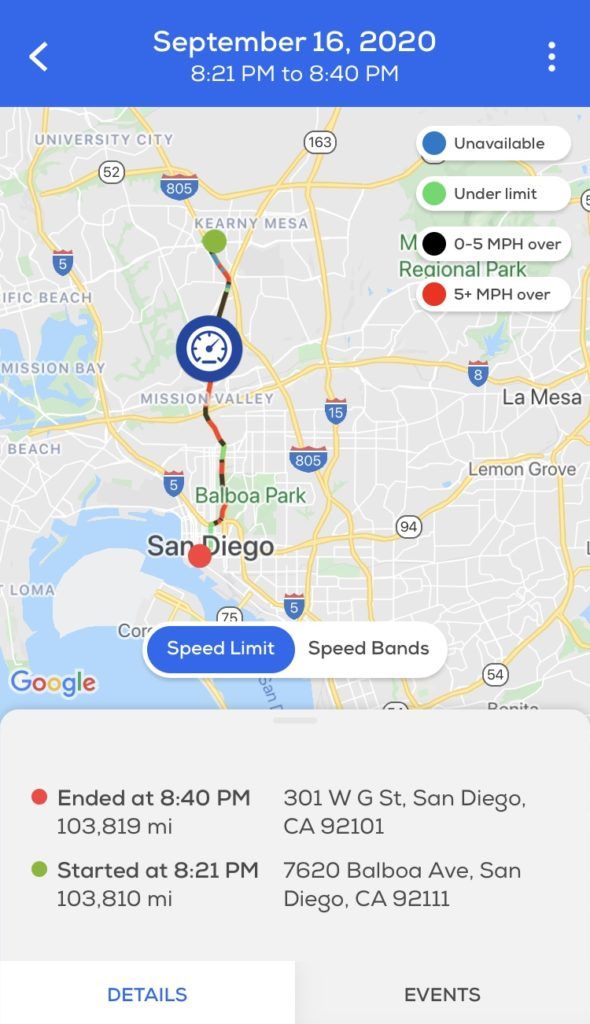
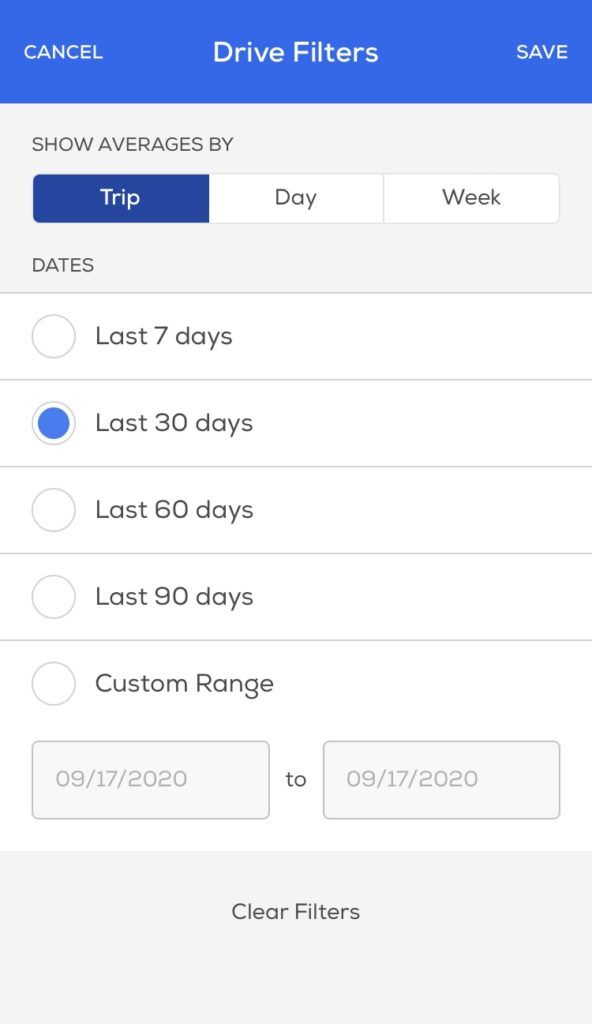
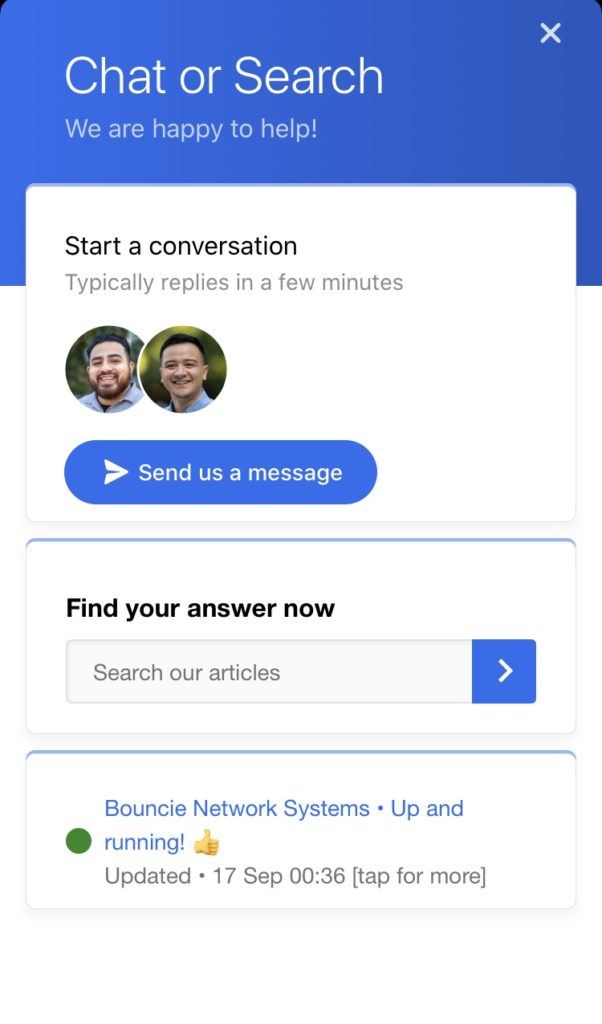
No comments:
Post a Comment